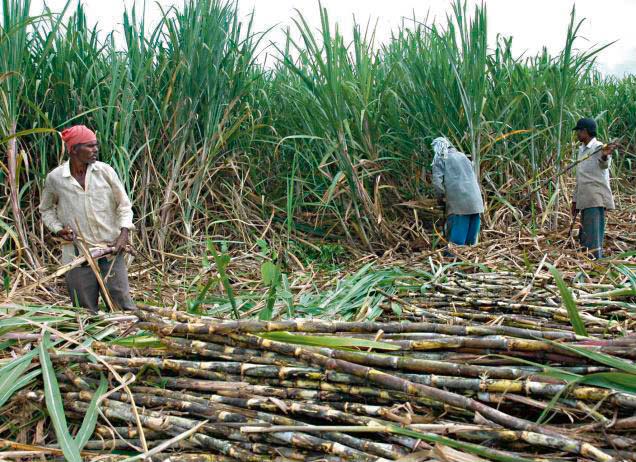Sugar has always been a politically sensitive commodity in India. For some time now, the sugar industry has been crippled with liquidity crisis. It was only in June, the Centre announced a bailout package and that too after the ruling BJP suffered a defeat in Kairana (UP) by-election in May.
A section of analysts and industry felt that the Rs 7,000 crore bailout package was not sufficient to resolve the crisis in the industry. According to the sugar industry, mere interest subsidies (for expansion of ethanol production capacity to divert use of cane procured by mills), and paying mills to maintain a buffer stock of sugar – part of the bailout package announced in June – did not help easing the liquidity crisis.
Excess production has led to a steady decline in prices, affecting the financial health of mills, which are facing a huge rise in arrears to be paid to farmers. Cash-strapped farmers are not happy and they consider it to be a failure on part of the Centre.
A number of studies suggest that dues to farmers in UP alone could rise to as high as Rs 20,000 crore by March 2019. The new crushing season is set to begin in a month’s time and dues to sugarcane growers are likely to rise. Analysts feel at least in three states – UP, Maharashtra and Karnataka – the sugar glut could potentially determine electoral outcomes, if the Centre does not intervene immediately to help mills clear stocks and dues to farmers.
Significantly, in UP, the la rgest cane growing state in the country, sugar mills still owe farmers Rs 11,000 crore and total dues across states stands at Rs 16,600 crore.
In the FY18 alone, excessive production resulted in accumulation of $3.5 billion sugarcane arrears, which the farmers are yet to receive. In the upcoming season, cane production is expected to be 7 million tonnes more than the projected domestic demand.
However, amid all gloom is a ray of hope. The government is expecting some relief on import tariff form China, which will help it export surplus raw sugar from the upcoming season’s harvest. Beijing has given some positive indications and New Delhi hoping to export around 1.5-2 million tonnes of raw sugar once things are formalized. India is also looking forward to exporting 2-2.5 million tonnes sugar to Bangladesh. Indonesia, which has an annual raw sugar requirement of 3.5-4 million tonnes, wants India to lower import tariff on palm oil before starting negotiation on sugar import. Malaysia has also proposed similar conditions for buying sugar.
Meanwhile, nearly 400,000 tonnes of sugar is in the process of being exported to countries in the Middle East and to Sri Lanka.










